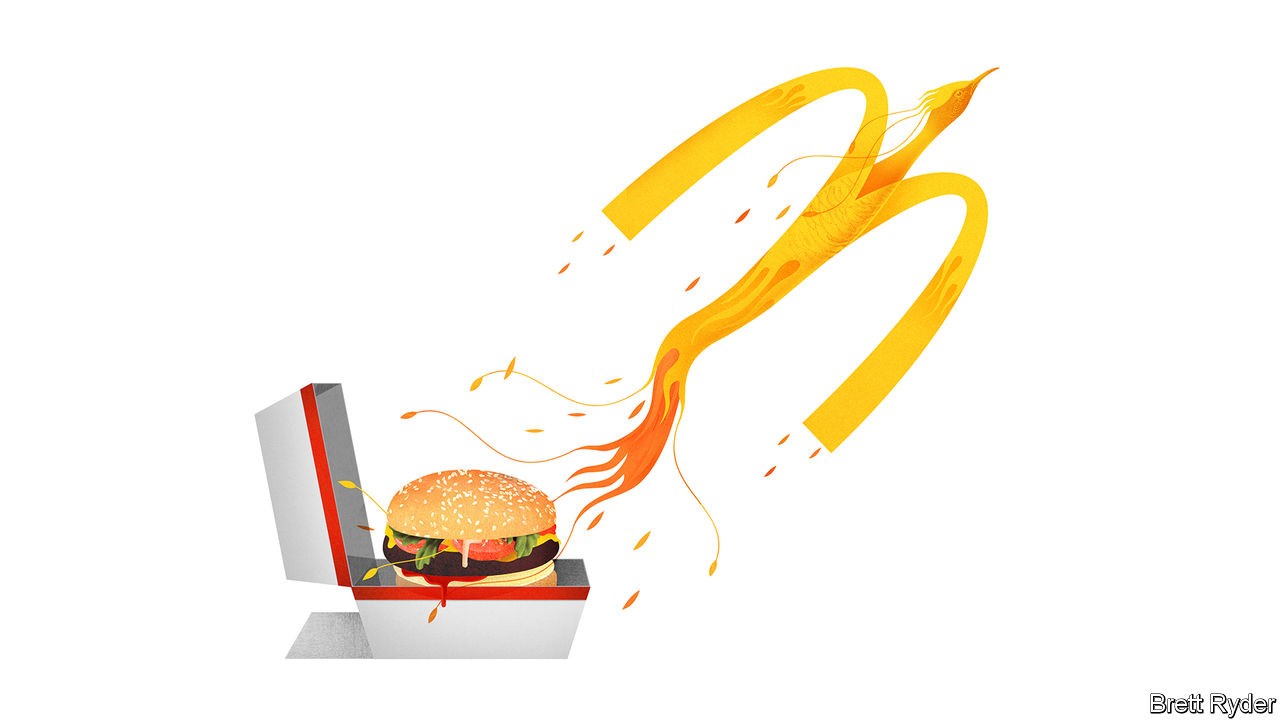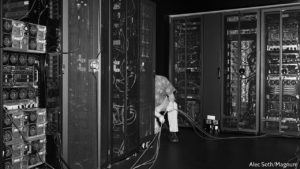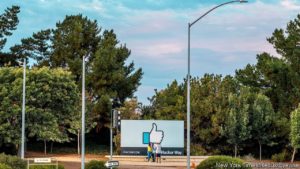https://www.economist.com/node/21795321?fsrc=rss%7Cbus

The new boss deserves credit for largely sticking with a successful strategy
CHRIS KEMPCZINSKI is anything but supersized. One year into his tenure, the CEO of McDonald’s is a lean-framed 52-year-old who runs marathons. Hard to believe, then, that he eats a McDonald’s meal twice a day, five days a week. “There are days when I’m indulgent and days when I’m careful about what I’m eating, but I eat a lot of McDonald’s,” he admits in an interview. Indeed he puts many of his best customers to shame. On average, the top 10% of Big Mac bingers visit his restaurants a fifth as regularly as he does.
Perhaps he is making up for lost time. Unusually for a McDonald’s boss, he is not a company lifer. He joined in 2015, hired by his predecessor, Steve Easterbrook, when McDonald’s was on the verge of meltdown. It was floundering in its attempts to compete with innovative American upstarts, such as Chipotle and Shake Shack. Its premises were shabby even as it offered hundreds of items on the menu that many of its customers could not afford. Critics called it a parasite on society, paying low wages and promoting obesity. Mr Kempczinski acknowledges that it suffered from hubris. Under Mr Easterbrook, who took charge in 2015, the mission was to shake it out of its complacency.
What followed was a lesson in corporate renewal that could have made Mr Easterbrook a megastar CEO had he not been fired last year for having a consensual relationship with an employee. (McDonald’s has recently sued him for allegedly concealing other sexual relationships and wants to recover a big pay-off.) Yet sensibly Mr Kempczinski is sticking to the programme. Unlike many new bosses overeager to tear up the legacy of their disgraced predecessors, he unveiled a new strategy on November 9th that builds on the work started in recent years. In the midst of a pandemic, it offers a valuable lesson of its own. Never let a crisis go to waste.
The seeds of the revival of McDonald’s started with a simple decision that is surprisingly easy to get wrong: go back to basics. From 2015 onwards, it pared back its array of menu offerings and focused on price and quality. It recommitted to Ray Kroc’s beloved business model, increasing the share of franchises last year to 93% (of almost 39,000 restaurants), up from 82% in 2015. That provided it with higher-margin and steadier royalty and rental income. It streamlined its sprawling international operations, selling control of its restaurants in China and Hong Kong. The results were impressive. Across McDonald’s sales exceeded $100bn last year; its operating margins, thinner than a frazzled patty in most of the restaurant industry, ballooned to 43%. And its share price sizzled. Since 2015 its market value has almost doubled to $160bn.
As it recovered its financial footing, it turned to investing in the future. But counter-intuitively, it probably benefited by not rushing. According to John Gordon, a San Diego-based restaurant consultant, its franchisee model makes it hard to move fast—and important to build consensus. It tests new ideas out in local markets before suggesting them to franchisees worldwide. Its ownership of the land under franchisees’ restaurants gives it a joint interest with them in co-investing in refurbishments and technological upgrades. Not only does this help woo customers by reinforcing the brand, it also supports the value of the land. In recent years McDonald’s and its franchisees have invested heavily in installing kiosks for touchscreen ordering and making other improvements such as two-lane drive-throughs. Last year the company made its biggest acquisition in years, buying a tech firm that helps personalise the drive-through experience. The overhauls may have cost franchisees a lot. But over the course of the covid-19 pandemic, they have started to reap the benefits.
That is because McDonald’s has used the crisis to step up the pace of its transformation, resulting in big sales surges in recent months, especially in America. With the interiors of many of its restaurants closed, it has relied on the roll-out of its digital, drive-through and delivery initiatives, all of which encourage a more “contactless” experience that it believes will outlast the pandemic. Recalling Kroc’s aphorism that “We’re not in the hamburger business. We’re in show business,” it has dazzled customers with customised menus by superstar rappers such as Travis Scott. And it has made old favourites, such as Big Macs and Quarter Pounders, central to its menu, which adds to simplicity in the kitchen and speeds up customer service. Over the next two years it hopes a long-awaited digital loyalty programme will enhance sales growth and maintain margins at their elevated levels of 2019. With a covid vaccine, it could do even better.
Many challenges remain for Mr Kempczinski. On food, McDonald’s is a laggard when it comes to chicken sandwiches and plant-based products. It promises a Crispy Chicken Sandwich and non-meat McPlant soon. The former is vital to catch up with competitors such as Chick-fil-A. The company says it is shifting marketing away from sales drives towards promoting itself as a community-focused-brand, but not everyone likes the pious tone. “Social Justice Warriors are now running McDonald’s Corporation. Stuff that has nothing to do with selling Big Macs,” says one franchisee quoted in an analyst’s report. McDonald’s faces two lawsuits from former and current black franchisees, alleging racial discrimination by pushing them into poor areas. It refutes the accusations.
From Big Macs to big data
Its ubiquity means McDonald’s is often in the news for the wrong reasons. But as a corporate turnaround, it is a compelling story. Instead of suffering from a tech onslaught as many bricks-and-mortar chains have, it has turned itself into a digital pioneer. Instead of hunkering down during the pandemic, it has embraced new ways of doing business. Despite Mr Kempczinski’s baptism of fire, even the leadership transition has been the best the industry has seen in years, says Sara Senatore of Bernstein, an investment firm. He should not be harshly judged for his frequency at the lunch counters. So far he has earned all the Quarter Pounders he can eat.■
This article appeared in the Business section of the print edition under the headline “The big McComeback”


















